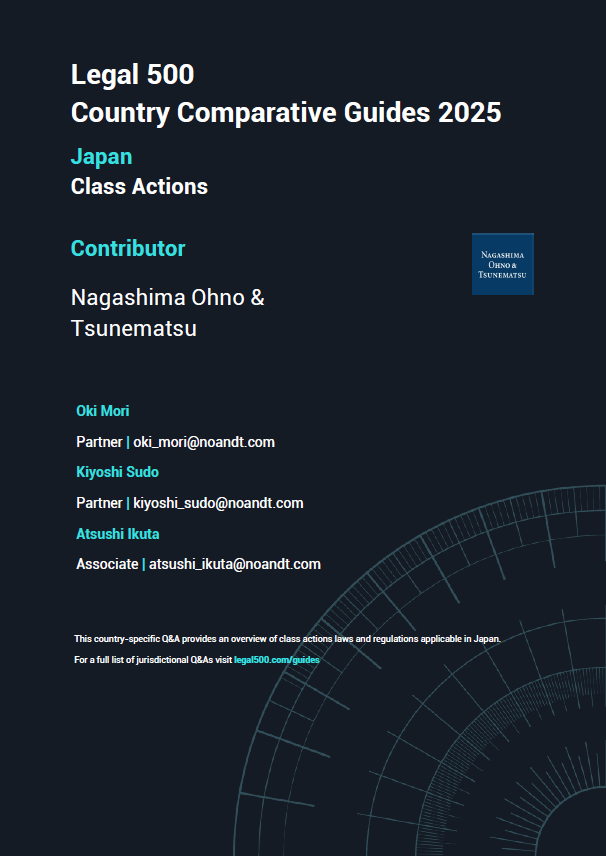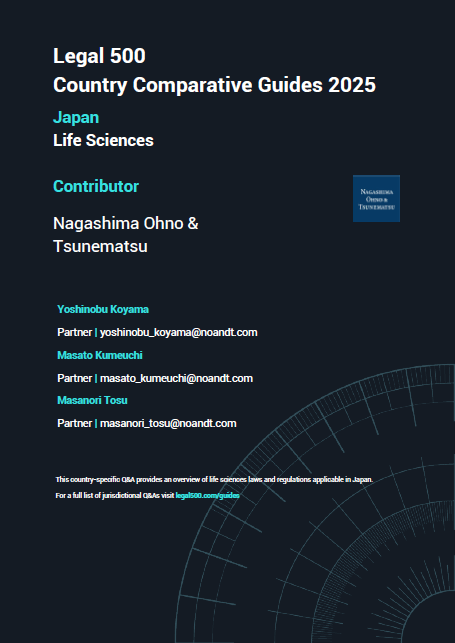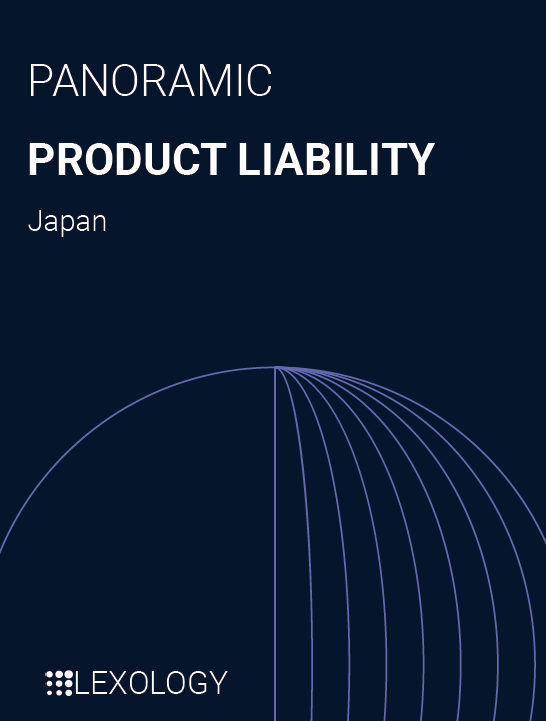
NO&T Thailand Legal Update
Thailand’s e-commerce market has experienced substantial growth over the past few years. This has been driven by increased consumer reliance on online shopping platforms since the pandemic. An example is the case of The iCon Group Co., Ltd. (the “iCon Group”), an e-commerce business operator that rapidly emerged as a successfully self-proclaimed online health supplement and cosmetic products business, with a number of well-known Thai celebrities involved, bringing its growing business into the spotlight. According to the database of the Office of the Consumer Protection Board (the “OCPB”), the competent authority governing direct sales and direct marketing registration, the iCon Group had been registered with the OCPB for direct marketing business under the Direct Sale and Marketing Act of 2002 (the “Direct Sale and Marketing Act”) since 2019 to operate its direct marketing business for sales of cosmetic products. However, in late 2024, the iCon Group was unexpectedly hit by a fraud scandal and faced numerous complaints from alleged victims. This resulted in the iCon Group attracting significant public attention with several investigations being carried out into its prominent executives and associated celebrities, including its self-proclaimed e-commerce business model.
From the perspective of compliance, it appears to the OCPB that the iCon Group’s business model was not a ‘de jure’ e-commerce business, i.e., it was not intended to legally operate to offer sales of products to customers directly via its own website platform as per its registration, but rather via its sales representatives’ websites. In fact, the iCon Group was found to have operated its business by encouraging its existing members to induce new members to join as sales representatives with promises of granting benefits based on the number of persons joining the network, which violates with Section 19 of the Direct Sale and Marketing Act.※1 As a result, on 7 January 2025, the secretary of the OCPB issued an order revoking the registration of the direct marketing business of the iCon Group,※2 leading to controversial discussions among legal practitioners about compliance.
Therefore, this article aims to highlight the key takeaways for direct marketing, focusing on the legal requirements to engage in e-commerce business under the Direct Sale and Marketing Act, in order to enhance understanding of legal compliance and to prevent legal consequences from arising for current and future e-commerce business operators.
One of the key regulations governing the operation of e-commerce businesses in Thailand is the Direct Sale and Marketing Act. Under the Direct Sale and Marketing Act, the legal term of e-commerce business is referred to ‘direct marketing’, where goods and services are marketed by means of communicating information, in order to directly offer goods and services for sale to remote consumers, with the expectation that consumers will agree to purchase such goods and services from the direct marketing operators.※3
From the given definition, it could be interpreted that any kind of e-commerce business that operates through an online platform, connecting business operators and remote consumers and enabling customers to directly purchase products and services from such e-commerce business operators, falls under the scope of direct marketing under the Direct Sale and Marketing Act. Therefore, it would be necessary to register with the OCPB for direct marketing business before the commencement of operations.※4 As described, this direct marketing registration aims to protect consumer rights when purchasing goods or services through online platforms, as consumers are unable to physically inspect the products or services prior to the purchase.
Although the Direct Sale and Marketing Act and the relevant regulations do not clearly specify the definition of a direct marketing business operator, a manual published by the OCPB has clarified the persons who are required to register for direct marketing business to engage in sales via an online platform, as follows:
Upon the completion of the direct marketing registration, direct marketing business operators must comply with certain obligations, such as the duty to comply with information, advertisement, and warranty requirements,※6 the duty to submit a direct marketing report to the OCPB within the designated timeframe,※7 and the duty to prepare and deliver documents related to the sales of goods or services to consumers.※8
As the Direct Sale and Marketing Act aims to protect consumers from being deceived into actively marketing goods or services, thereby placing them at a disadvantage and resulting in unfair treatment, one of the key restrictions thereunder is that direct marketing business operators are strictly prohibited from operating their businesses in a manner that induces any person to join a direct sales or direct marketing network with promises of granting benefits that will be calculated based on the number of persons joining the network.※9 Those who fail to comply with this requirement will be subject to a penalty,※10 or the revocation of their direct marketing registration by the OCPB under the Administrative Procedure Act of 1996.※11
As of the date of this article, there are approximately 900 e-commerce business operators registered with the OCPB,※12 a number which is expected to increase considering the growth of e-commerce business and the shift in consumer preferences to online shopping.
There are certain e-commerce transactions for the sale and purchase of goods and services that do not fall under the definition of direct marketing, as follows:
Further to the statutory exemptions,
Although direct marketing registration is not required for the above exempted business operations, e-commerce business operators are still required to comply with other e-commerce-related laws and regulations, including, but not limited to, the Electronic Transaction Act of 2001, the Commercial Registration Act of 1956, the Personal Data Protection Act of 2019, the Royal Decree on Operation of Digital Platform Services Which Requires Notification of 2022, etc.
Any person who fails to register for direct marketing business will be subject to imprisonment for a period not exceeding 1 year or a fine not exceeding THB 100,000 or both, and to a daily penalty not exceeding THB 100,000 per day throughout the duration of such violation.※16
In the case of a juristic person, if such misconduct of the juristic person arises from an order or act of a director, manager or any person responsible for such juristic person, or if the person has a duty to order or act but omit from such order or act, thereby giving rise to the juristic person’s violation, such person will be held liable.※17
Please note that the penalty under the Direct Sale and Marketing Act can be settled by paying a fine to the OCPB at the rate determined by the OCPB on a case-by-case basis,※18 except for the penalty resulting from a violation of Section 19 of the Direct Sale and Marketing Act, as elaborated on in Topic (1) General Principles above.
The incident involving the iCon Group emphasizes the importance of compliance in the e-commerce industry under the Direct Sale and Marketing Act, transparency of business models, and ethical business practices in e-commerce business. It is expected that the OCPB will adopt a more proactive stance to enforce the laws and sanctions against violators. Therefore, it is prudent for e-commerce business operators to have a clear understanding of compliance and their business model in order to ensure compliance with laws and restrictions under the Direct Sale and Marketing Act and relevant e-commerce laws and regulations to avoid the penalties described above.
*1
Section 19 of the Direct Sale and Marketing Act: Direct sales business operators and direct marketing business operators are prohibited from operating in a manner that induces individuals to join the network to engage in direct sales or direct marketing, with promises to grant benefits that are calculated based on the number of persons joining the network.
*2
OCPB Press Release dated 8 January 2025, available at https://www.ocpb.go.th/news_view.php?nid=15755
*3
Section 3 of the Direct Sale and Marketing Act
*4
Section 27 of the Direct Sale and Marketing Act
*5
Manual of the Office of Consumer Protection Board, Page 48, undated
*6
Sections 28, 29, and 37 of the Direct Sale and Marketing Act
*7
Section 29/2 of the Direct Sale and Marketing Act and the Notification of the Office of the Consumer Protection Board re: requirements and timeframe for submitting the report for operating a direct marketing business to the registrar of 2020
*8
Section 30, paragraph 2 of the Direct Sale and Marketing Act
*9
Section 19 of the Direct Sale and Marketing Act
*10
Section 46 of the Direct Sale and Marketing Act: Any person violating Section 19 shall be subject to imprisonment for a period of not more than 5 years and a fine not exceeding THB 500,000.
*11
Sections 3, 5, 44, and 53, paragraph two (3) (5) of the Administrative Procedure Act of 1996, and Memorandum of the Administrative Procedures Committee re: Revocation of the Order of the Registration of Direct Marketing Business by Virtue of the Administrative Procedure Act of 1996, Case No. 1588/2567 on December 2024
*12
According to the database of the OCPB as of 23 January 2024
*13
The Ministerial Regulation on Sales of Goods or Services Through an E-Commerce Platform That Are Not Considered Direct Marketing of 2018
*14
Manual of the Office of Consumer Protection Board, Page 46, undated
*15
Manual of the Office of Consumer Protection Board, Page 47, undated
*16
Section 51/1 of the Direct Sale and Marketing Act
*17
Section 54 of the Direct Sale and Marketing Act
*18
Section 55 of the Direct Sale and Marketing Act
This newsletter is given as general information for reference purposes only and therefore does not constitute our firm’s legal advice. Any opinion stated in this newsletter is a personal view of the author(s) and not our firm’s official view. For any specific matter or legal issue, please do not rely on this newsletter but make sure to consult a legal adviser. We would be delighted to answer your questions, if any.


(June 2025)
Oki Mori, Kiyoshi Sudo, Atsushi Ikuta (Co-author)


(March 2025)
Yoshinobu Koyama, Masato Kumeuchi, Masanori Tosu (Co-author)


Yothin Intaraprasong, Chattong Sunthorn-opas, Thunsinee Sungmongkol (Co-author)


(November 2024)
Oki Mori, Mai Umezawa (Co-author)


(June 2025)
Oki Mori, Kiyoshi Sudo, Atsushi Ikuta (Co-author)


Yothin Intaraprasong, Chattong Sunthorn-opas, Thunsinee Sungmongkol (Co-author)


(November 2024)
Oki Mori, Mai Umezawa (Co-author)


(September 2024)
Oki Mori, Akiko Inoue (Co-author)


Patricia O. Ko


Ngoc Hoang


Yuan Yao Lee


Chattong Sunthorn-opas, Thunsinee Sungmongkol (Co-author)


Patricia O. Ko


Ngoc Hoang


Yuan Yao Lee


Chattong Sunthorn-opas, Thunsinee Sungmongkol (Co-author)


Chattong Sunthorn-opas, Thunsinee Sungmongkol (Co-author)


Yothin Intaraprasong, Yosuke Konno, Naruenad Charoenpakdee (Co-author)


Poonyisa Sornchangwat, Kwanchanok Jantakram (Co-author)


Yothin Intaraprasong, Chattong Sunthorn-opas, Thunsinee Sungmongkol (Co-author)